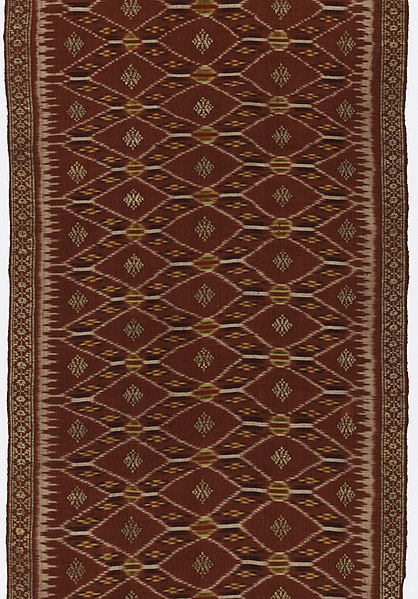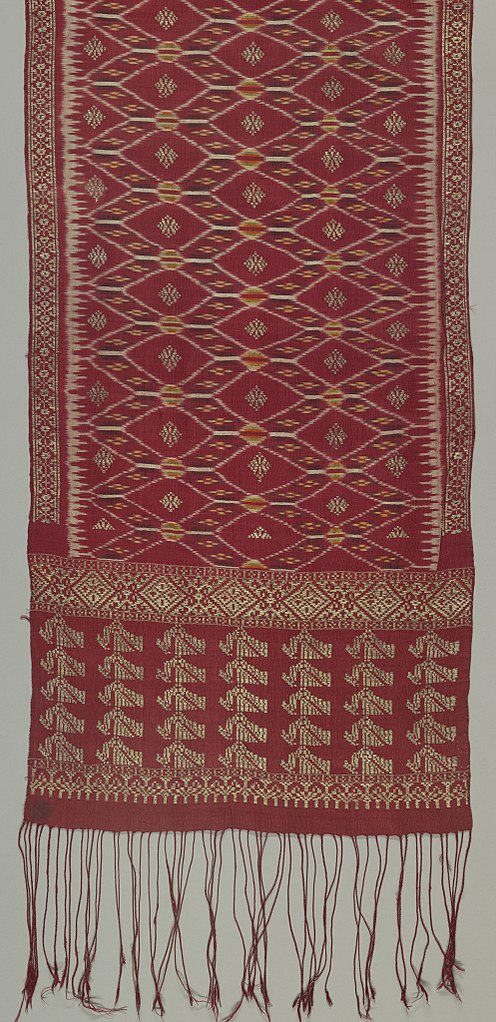
Thammasat University students are cordially invited to participate in a webinar on Saturday, 31 July at 3pm Bangkok time.
Presented by JWD Art Space, located at 188/72 Chulalongkorn Soi 16, Jarusmuang Road, Wang Mai, Pathumwan, Bangkok, the webinar is entitled A Life Beyond Boundaries: from the book to the exhibition.
The event will feature Ajarn Charnvit Kasetsiri, former Rector of Thammasat University, and winner of the Fukuoka Prize honoring outstanding work of individuals or organizations in preserving or creating Asian culture, with artists participating in an exhibition inspired by the writings of the Irish historian Professor Benedict Anderson.
The TU Library features many books by and about Professor Anderson.
As TU students may also know, due to the generosity of Professor Anderson and his longtime friend and colleague, Ajarn Charnvit, many books from Professor Anderson’s own personal collection were donated to the TU Library and are available on the shelves of the Charnvit Kasetsiri Room, Pridi Banomyong Library, U1 level, Tha Prachan campus.
The artists who will make presentations at the event include Boedi Widjaja, an Indonesian artist now based in Singapore.
According to his website,
Driven by first-hand experiences of migration and diaspora, the practice of Boedi Widjaja (b. 1975, Indonesia/Singapore) articulates subtle reflections on migration, memory, spatial relations and cross-cultural hybridities. Trained as an architect and with a background in graphic design, the techniques, materials and tools of drawing have become a defining element of Widjaja’s artistic practice. This is expressed through a broad range of media, from photography and new media to architectural installations and Live Art, with an emphasis on process and bodily engagement.
Mark Salvatus, and Norberto Roldan, both of whom live and work in Manila, the Philippines, will also be present.
An online description of Noberto Roldan’s work follows:
Norberto Roldan’s (b. 1953, Roxas City, Philippines; lives and works in Manila, Philippines) practice is rooted in social and political issues. His installations, assemblages and paintings of found objects, text fragments and found images address issues surrounding everyday life, history and collective memory. His artistic process engages with ways in which material objects are re-appropriated in another context.
Another website states about Mark Salvatus’s artistic creations:
Mark Salvatus tries to build direct and indirect engagement using objects, photography, videos, installations and participatory projects that present different outcomes of energies, meanings and experiences.
Students are invited to join the Zoom webinar at this link:
https://us02web.zoom.us/j/88184512145.
The event will also be streamed live on Facebook at this link:
https://www.facebook.com/events/259359892290285?active_tab=about

As TU students of political science and history know, Professor Anderson wrote a highly influential book, Imagined Communities (1983), analyzing the origins of nationalism.
Imagined Communities is in the collection of the TU Library as well as several other books by and about Benedict Anderson.
These include Withdrawal Symptoms (1976); Religion and Social Ethos in Indonesia (1977); Interpreting Indonesian Politics: Thirteen Contributions to the Debate (1982); In the Mirror: Literature and Politics in Siam in the American Era (1985); Language and Power: Exploring Political Cultures in Indonesia (1990); The Spectre of Comparisons: Nationalism, Southeast Asia, and the World (1998); Violence and the State in Suharto’s Indonesia (2001); Under Three Flags: Anarchism and the Anti-Colonial Imagination (2005); The Fate of Rural Hell: Asceticism and Desire in Buddhist Thailand (2012); and Exploration and Irony in Studies of Siam Over Forty Years (2014).
One of the themes of the event as described in his memoir A Life Beyond Boundaries will be an image of a frog leaping away from a coconut shell. Professor Anderson wrote in his memoir:
Both [Thai and Indonesian people] have long had a fatalistic image of a frog who lives all its life under half a coconut shell…Sitting quietly under the shell, before long the frog begins to feel that the coconut bowl encloses the entire universe. The moral judgement in the image is that the frog is narrow-minded, provincial, stay-at-home and self-satisfied for no good reason.
Professor Anderson himself was unlike the frog, traveling widely even in childhood. In A Life Beyond Boundaries, he recalled his youthful studies, along with some recollections of libraries a half-century ago and today:
In those days libraries were still sacred places. One went into the ‘stacks’, dusted off the old books one needed to read, treasured their covers, sniffed their bindings, and smiled by their sometimes strange, outdated spellings. Then came the best part, randomly lifting out books on the same shelf out of pure curiosity, and finding the most unexpected things. We were informally trained how to think about sources, how to evaluate them, compare them, dismiss them, enjoy them. Chance was built into the learning process. Surprise too.
Today, libraries are trying monomaniacally to digitalize everything, perhaps in the expectation that eventually books will become obsolete. Everything will be findable ‘online ’. Randomness is perhaps disappearing, along with luck. Google is an extraordinary ‘research engine ’, says Google, without irony in its use of the word ‘engine ’, which in Old English meant ‘trickery’ (as is reflected in the verb ‘to engineer’) or even ‘an engine of torture ’. Neither Google nor the students who trust it realize that late- nineteenth-century books feel this way in one’s hands, while early-twentieth-century books feel that way. Japanese books are bound one way, Burmese books another. Online, everything is to become a democratically egalitarian ‘entry’. There is no surprise, no affection, no scepticism. The faith students have in Google is almost religious. Critical evaluation of Google? We do not yet teach it. Many students have no idea that even though Google ‘makes everything available ’, it works according to a program.
Nationalism and globalization do have the tendency to circumscribe our outlook and simplify matters. This is why what is increasingly needed is a sophisticated and serious blending of the emancipatory possibilities of both nationalism and internationalism…
In addition, A Life Beyond Boundaries inspired respectful and sympathetic reviews for its modest tone and focus on intellectual matters, reflecting his personality. TU students might note how in his younger years, Professor Anderson enjoyed listening to radio adaptations of classic novels such as Anna Karenina, The Count of Monte Cristo, Lord Jim, and Tess of the D’Urbervilles. He was also fond of theater, especially plays by Shakespeare, Shaw, Wilde, Sheridan, and O’Casey. TU students have the privilege of being able to read some of these authors in editions once owned by Professor Anderson himself. Other titles are likewise available in the TU Library collection to encourage and inspire future generations of researchers.

(All images courtesy of Wikimedia Commons)
